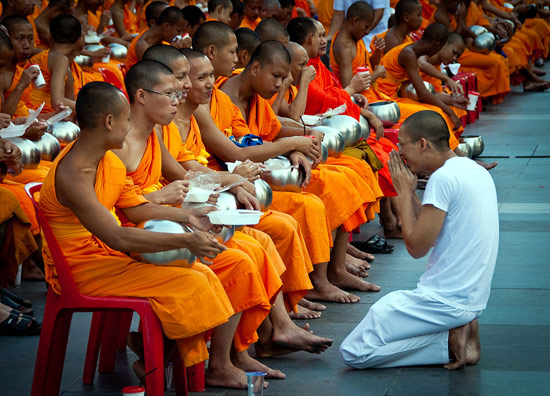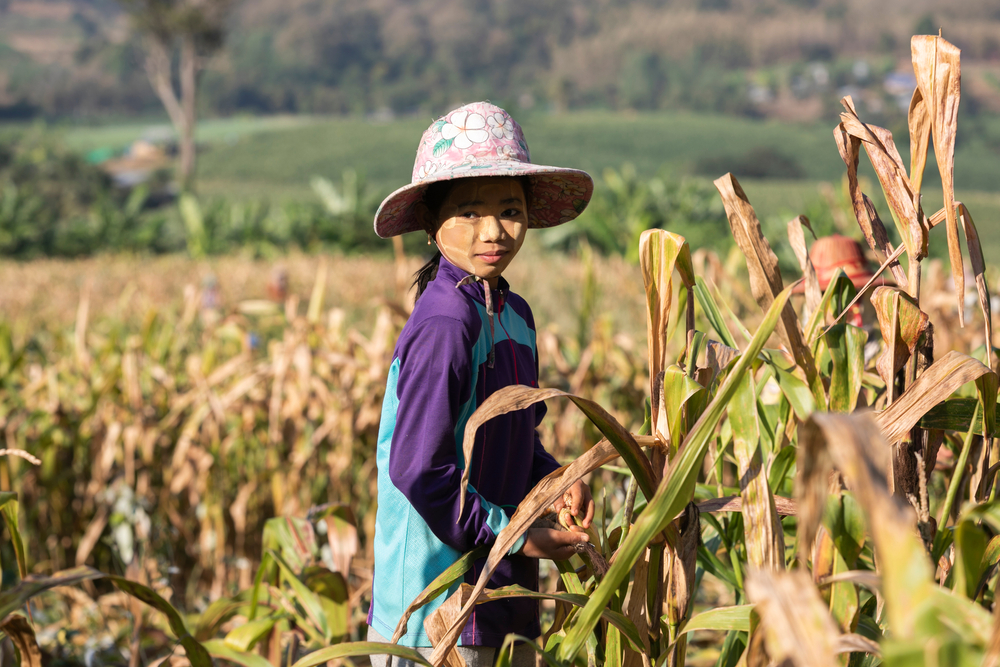Life Stages: Coming of Age
At puberty, some young Thais go through a ceremony similar to the one-month tham khwan. They have their hair cut or shaved, and they receive a blessing. The ceremony marks their transition from childhood to adulthood.
Devout Buddhists believe that ordination as a monk is a necessary coming of age rite for every young man. The ritual also gives a young man’s parents a chance to earn merit. The process is so much a part of Thai society that employers give young men time off for the event and to live in the monastery afterward. The three-month Phansa, or Buddhist Lent, is regarded as an ideal time for ordination rituals, which often last for several days.
Steps of Ordination
At the beginning of the buat or ordination ceremony, the young man who is about to enter monkhood prays to his ancestors and seeks the blessing of his elders by prostrating himself at their feet. Then his head and eyebrows are shaved to symbolize the renunciation of everything worldly.
After the hair-cutting ceremony, the young man goes around his neighborhood to announce his intention of entering the monkhood to the spirits. He then returns to the temple to listen to the monks chanting. The next day, the young man dresses in white robes and goes barefoot. His family and friends lead him back to the temple in a sort of procession.
Sitting in front of the image of the Buddha, the novice monk takes his vows by repeating the ten precepts in Pali, the ancient language of the scriptures. After more chanting, the abbot pronounces the young man a monk. Family and friends make offerings of things that the young man might need during his stay at the monastery.
Sometimes, mass ordinations take place in the villages or rural areas. A number of families pool their resources, and the ordinations become a festival with lavish feasts, rented generators, and occasional folk art groups who perform comic or satiric operas.
Many Thai men spend three months in the monastery, during which time they learn the 227 rules of Buddhism. While most of them return to society, some choose to stay at the monastery as monks. Monks usually choose an auspicious date and time to leave the monastery, because when they return to the world they come as a new person.
There is no similar initiation or ordination ceremony for girls.
Entering the Workforce
Young people between the ages of 15 and 18 can legally work in some sectors. Teens from poor families often work out of necessity.
Teens cannot legally work with hazardous materials or dangerous equipment. They are not supposed to do night work or work where alcohol is served. Many young people work illegally in restaurants and factories.
Copyright © 1993—2025 World Trade Press. All rights reserved.

 Thailand
Thailand 
